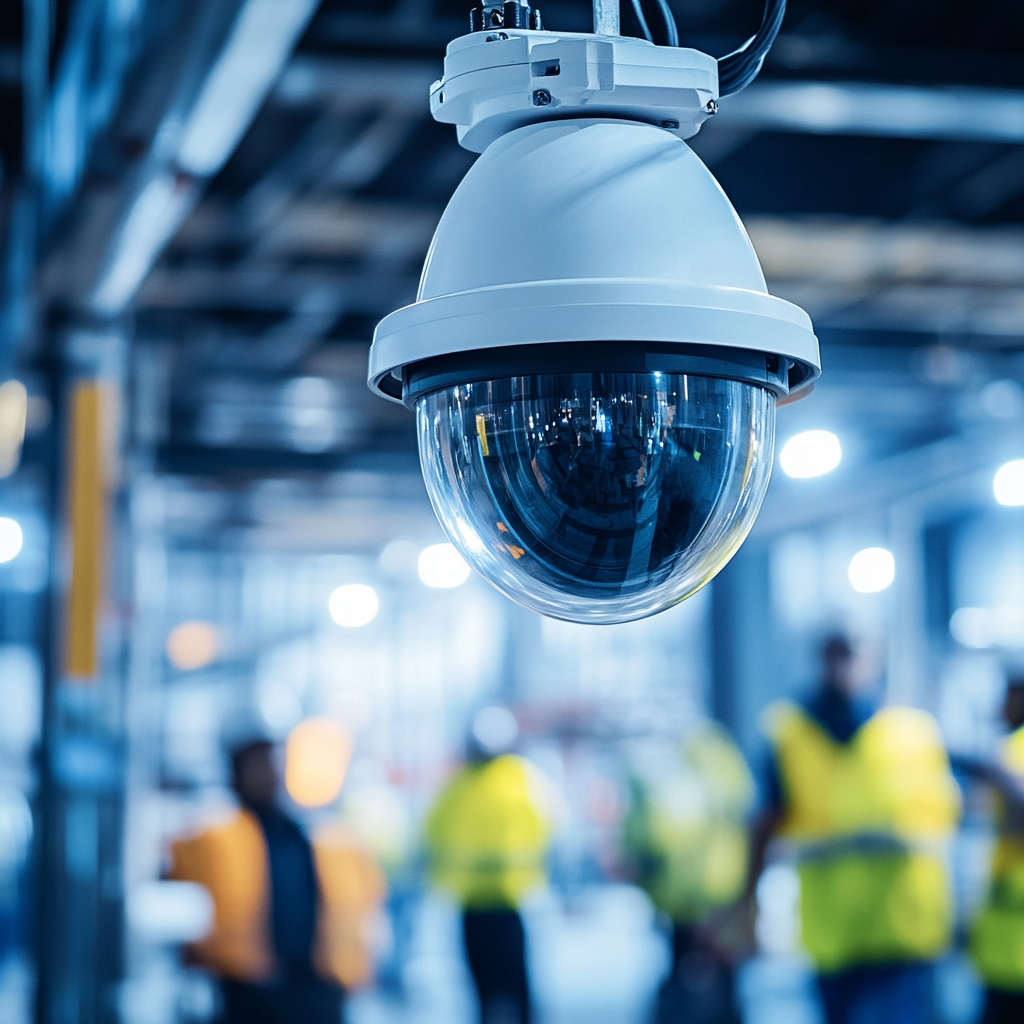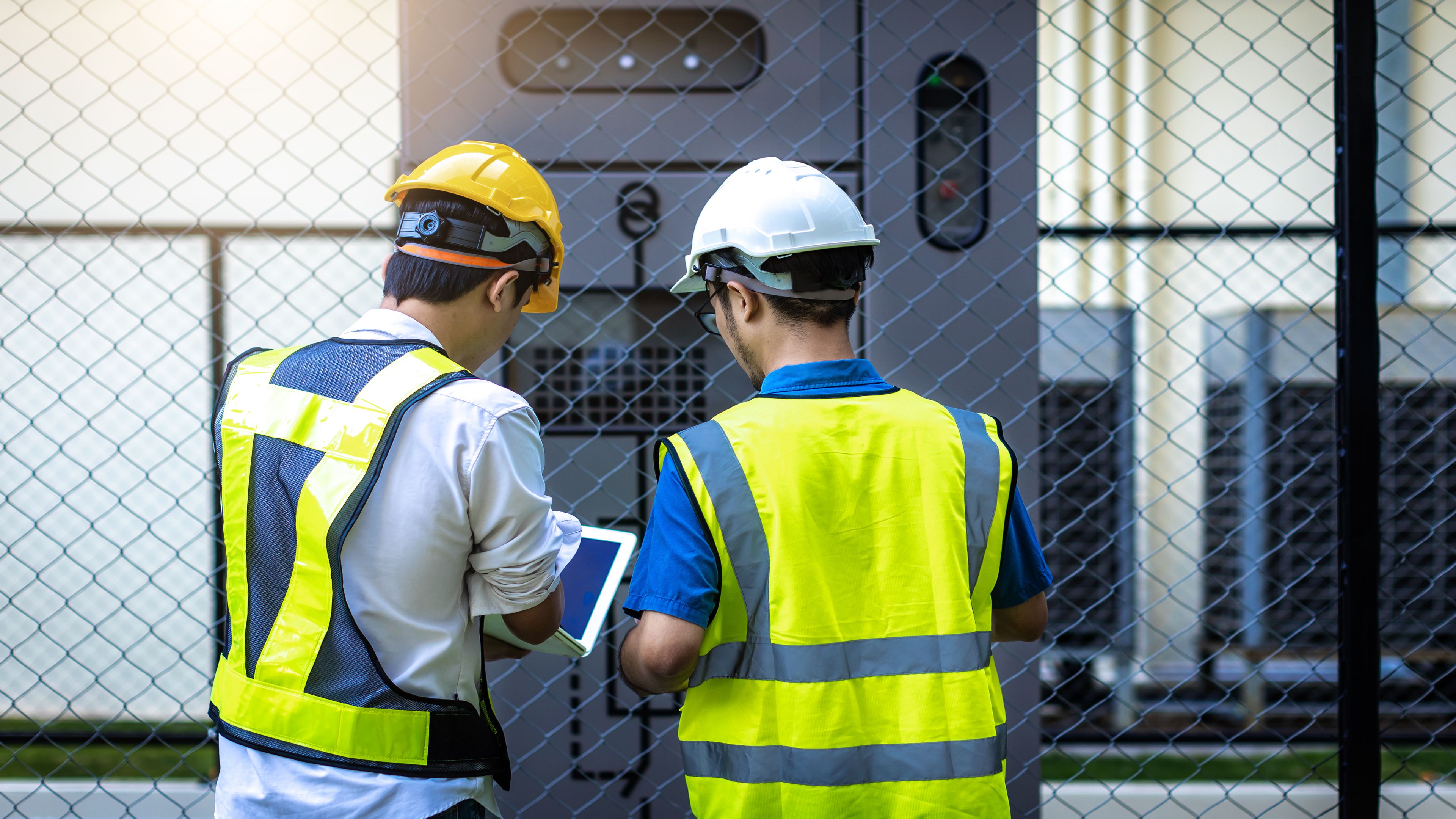Explore five cutting-edge ways AI cameras enhance operations in industrial sites, addressing workforce and fleet identification, improving space monitoring and safety, while overcoming challenges like data security, feed quality, and camera positioning.
Harnessing the potential of AI Cameras
Artificial intelligence (AI) has revolutionized industries worldwide, and the hospitality sector is no exception. AI cameras, with their ability to analyze data in real time and make intelligent decisions, have emerged as a game-changer in managing industrial sites. Once used solely for surveillance, these cameras have evolved to become critical tools in enhancing operational workflows, improving safety measures, and optimizing space management. This article explores five ways AI cameras can be effectively utilized in industrial sites within the hospitality industry, while also addressing some limitations and potential solutions.
Understanding AI Cameras and Their Evolution
What Are AI Cameras?
AI cameras are advanced devices equipped with computer vision and machine learning capabilities that go beyond traditional video recording. These systems analyze visual data in real time, recognize patterns, and make decisions or trigger automated responses without human intervention. Unlike standard surveillance cameras that merely capture footage, AI cameras can identify objects, track movements, and detect anomalies, providing actionable insights that improve security and efficiency.
The Evolution of AI in Surveillance
AI cameras have undergone significant advancements over the years, transitioning from simple motion detectors to intelligent systems capable of predictive analysis. Early AI cameras primarily relied on basic algorithms for object detection, but modern iterations integrate deep learning techniques that continually learn and adapt to their environment. These advancements have made AI cameras not only smarter but also more efficient in handling complex tasks, from identifying workforce members to monitoring large-scale industrial activities.
5 Ways to Utilize AI Cameras in Industrial Sites
1. Seamless Workforce Identification
Efficient management of the workforce is critical in industrial sites where multiple teams operate simultaneously. AI cameras enable seamless workforce identification by automatically recognizing employees through facial recognition or ID badges. This technology allows for:
- Automated Access Control: AI cameras ensure that only authorized personnel enter restricted areas, reducing security risks.
- Attendance Tracking: With real-time identification, organizations can streamline attendance records, minimizing manual errors and administrative workload.
- Staff Optimization: By analyzing workforce patterns, AI systems can optimize shift schedules to ensure adequate staffing levels during peak and off-peak hours.
Together, these features empower industrial sites to enhance security, streamline operations, and maximize workforce efficiency.
2. Seamless Fleet Identification (License Plate Recognition – LPR)
The hospitality industry often relies on a fleet of vehicles for logistics, transportation, and supply chain management. AI cameras with License Plate Recognition (LPR) capabilities enhance the efficiency of fleet operations by:
- Automated Vehicle Tracking: Identifying and recording the entry and exit of vehicles in real time.
- Improved Security: Reducing the chances of unauthorized vehicle access by instantly alerting security teams about unfamiliar plates.
- Efficient Logistics Management: Enhancing the accuracy of delivery schedules and reducing waiting times by streamlining vehicle identification.
These capabilities help industrial sites manage their logistics more effectively, ultimately leading to cost savings and improved resource utilization.
Find out more about Neoma’s solutions to streamline workforce verification for workers, drivers, and asset access, emphasizing the importance of safety and compliance in workforce management.
3. Space Monitoring for Enhanced Efficiency
Effective space management is a critical component of industrial operations in hospitality, where the utilization of every square foot counts. AI cameras provide continuous surveillance and deliver insights that help optimize space usage:
- Real-Time Occupancy Monitoring: AI systems can detect overcrowded areas and suggest reallocation of resources to prevent bottlenecks.
- Workflow Efficiency Analysis: By analyzing foot traffic patterns, businesses can adjust layouts to improve movement within the site, thereby reducing operational delays.
- Asset Management: Monitoring the placement and usage of equipment in real time helps reduce misplaced items, ensuring that tools are available when needed.
This data-driven approach empowers decision-makers to optimize site layouts, leading to more productive and streamlined operations.
4. Space Safety and Compliance
AI cameras play a crucial role in ensuring the safety and compliance of industrial sites by continuously monitoring for potential hazards and unsafe practices. In hospitality settings, where maintaining safety standards is paramount, AI cameras can help by:
- Proactive Hazard Detection: Identifying risks such as spills, fire hazards, or improper storage of chemicals, and triggering alerts for immediate response.
- Regulatory Compliance: Ensuring that staff adhere to safety protocols, such as wearing personal protective equipment (PPE), and automatically documenting compliance for audit purposes.
- Incident Response: Providing instant notifications to safety teams in case of emergencies, enabling faster and more efficient crisis management.
By enhancing safety protocols, AI cameras not only protect staff and guests but also reduce the risk of costly legal issues due to non-compliance.
5. Automating Operational Efficiency
AI cameras contribute significantly to the automation of routine tasks, freeing up human resources for more strategic roles. They enhance operational workflows in industrial sites by:
- Inventory Monitoring: Tracking stock levels in real time to ensure that supplies are restocked promptly, thereby avoiding disruptions in service.
- Predictive Maintenance: Analyzing equipment performance and detecting early signs of wear and tear to schedule preventive maintenance before failures occur.
- Energy Management: Monitoring the usage of utilities like lighting and HVAC systems, leading to more efficient energy consumption and reduced operational costs.
These automation capabilities enable businesses to streamline their processes, leading to improved productivity and reduced operational expenses.

Learn how Neoma’s people-counting solution utilizes existing CCTV cameras and sensors to accurately study individual behavior in spaces, enhancing resource allocation, operational efficiency, and decision-making through improved insights into space utilization patterns.
Overcoming Limitations of AI Cameras
While AI cameras offer numerous benefits, there are some limitations that businesses must address to maximize their effectiveness. Here are some common challenges and ways to overcome them:
Data Security
Challenges: Storing and processing visual data can pose risks to data security, especially if the data includes sensitive information about guests or staff.
Solutions:
- End-to-End Encryption: Ensuring that all data transmitted by AI cameras is encrypted to prevent unauthorized access.
- GDPR Compliance: Adopting data protection practices that align with global standards, such as the General Data Protection Regulation (GDPR), to safeguard personal information.
Feed Quality and Latency
Challenges: Achieving high-quality feeds in diverse lighting conditions and minimizing delays in data transmission can be difficult, especially in large industrial sites.
Solutions:
- Advanced Camera Technology: Utilizing cameras with features like night vision and high dynamic range (HDR) to maintain feed quality in low-light environments.
- Hybrid Edge and Cloud Processing: Combining edge computing for immediate data analysis with cloud processing for more in-depth analysis to reduce latency issues.
Camera Angle and Positioning
Challenges: Proper camera placement is crucial to avoid blind spots that can compromise surveillance coverage.
Solutions:
- Professional Site Assessment: Conducting a thorough assessment of the industrial site to determine optimal camera angles and positions.
- Wide-Angle Lenses and PTZ Cameras: Deploying pan-tilt-zoom (PTZ) cameras that offer flexibility in coverage and adjustable fields of view.
Choosing the Right Camera Model
Challenges: Not all cameras are suitable for every industrial environment, and selecting the wrong model can limit performance.
Solutions:
- Custom Solutions: Investing in specialized AI cameras that are designed to withstand specific conditions like extreme temperatures or high dust levels.
- Consultation with Experts: Engaging with technology experts to identify the most suitable camera models that align with the operational requirements of the site.
Enhancing Efficiency with AI Camera Systems
AI cameras are transforming the way industrial sites within the hospitality sector operate by providing real-time insights, enhancing safety measures, and optimizing space management. Despite the challenges, businesses can overcome limitations through strategic implementation and the adoption of advanced technologies. As AI continues to evolve, the potential for these intelligent systems to revolutionize industrial operations in hospitality remains vast, promising a future where efficiency, safety, and guest satisfaction reach new heights.
Embracing AI camera technology is not just an upgrade but a step towards creating a more intelligent, responsive, and efficient hospitality environment that meets the dynamic needs of the industry.
Interested in learning more? Talk to Neoma Sales today.







